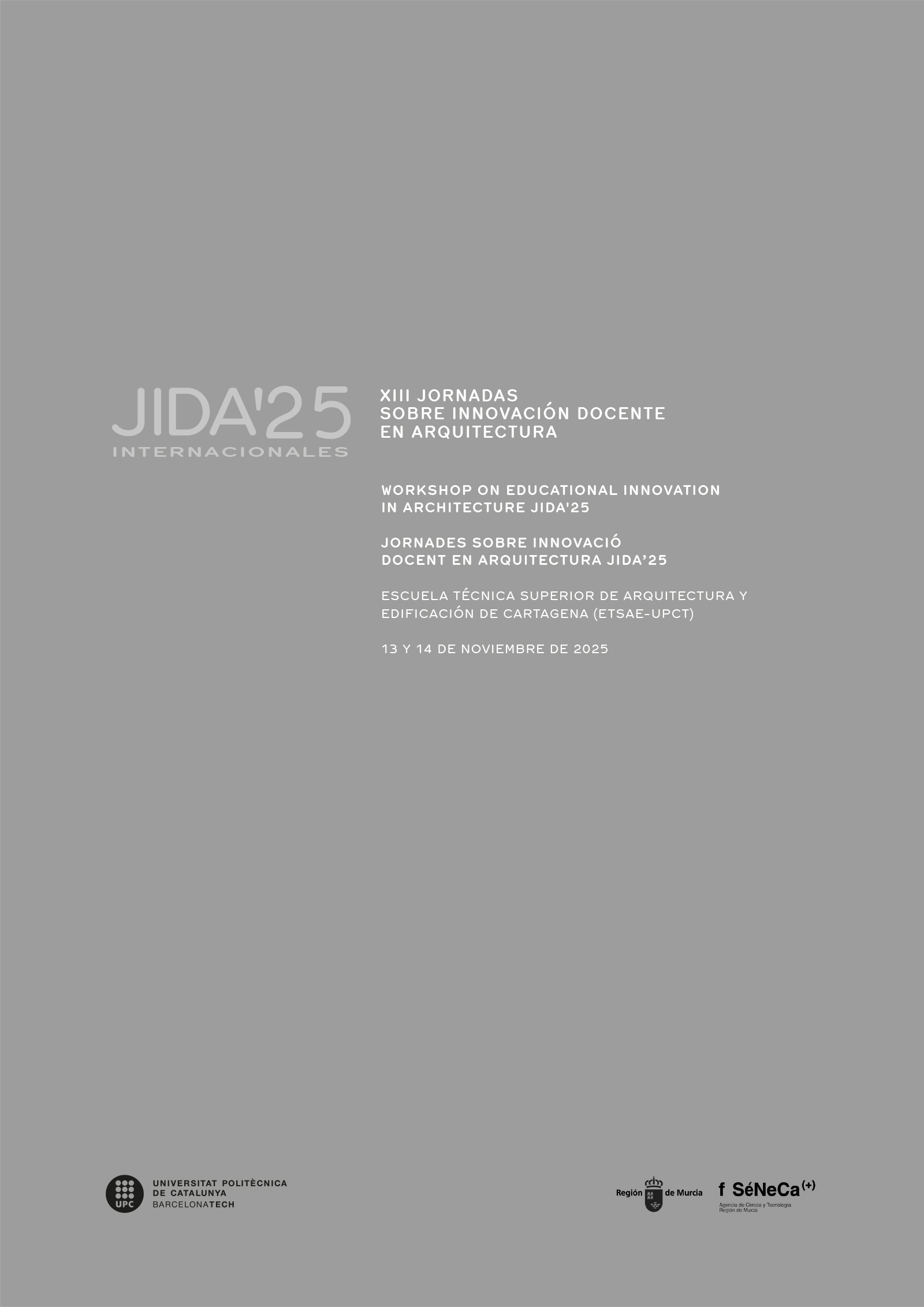Truss workshop
DOI:
https://doi.org/10.5821/jida.2025.13629Keywords:
structure, truss, spaghetti, triangulation, translatabilityAbstract
The truss workshop is a teaching experience developed in the Construction I course during the first year of the architecture degree. It is designed to introduce students to structural logic through an active, project-based, and experimental approach. Using spaghetti as an analog material, a series of progressive exercises is proposed to empirically understand the behavior of elements under tension, compression, and bending, as well as the geometric stability of triangulated structures. The workshop culminates in the team-based design and construction of a bridge-type truss capable of spanning a given distance and withstanding a point load, incorporating criteria of efficiency, lightness, and aesthetics. Methodologically, the proposal is framed within Research by Design, fostering a situated, reflective, and cooperative form of technical learning. This activity extends a pedagogical line based on the manipulation of real materials as a way of internalizing constructive logic from the very first stages of architectural education.
References
Segovia-González, L. A., Morsch, I. B., y Masuero, J. R. 2005. Didactic games in engineering teaching - Case: Spaghetti bridges design and building contest. Proceedings of COBEM 2005, 18th International Congress of Mechanical Engineering, Ouro Preto, MG, Brazil. ABCM.
Afify, H. 2021. Structure models as teaching tools for architecture students: Developing visual and haptic understanding of structural systems.
Kraus, M., Lehner, A., Gollwitzer, C., y Felgner, F. 2021. Struct-MRT: Teaching structural engineering through mixed reality and real-time simulation.
Arias Madero, J. y Llorente Álvarez, Á. 2020. Materia en construcción. Talleres de introducción a la lógica estructural a través del ensayo y la manipulación material. Comunicación presentada en las Jornadas JIDA 2020.






















